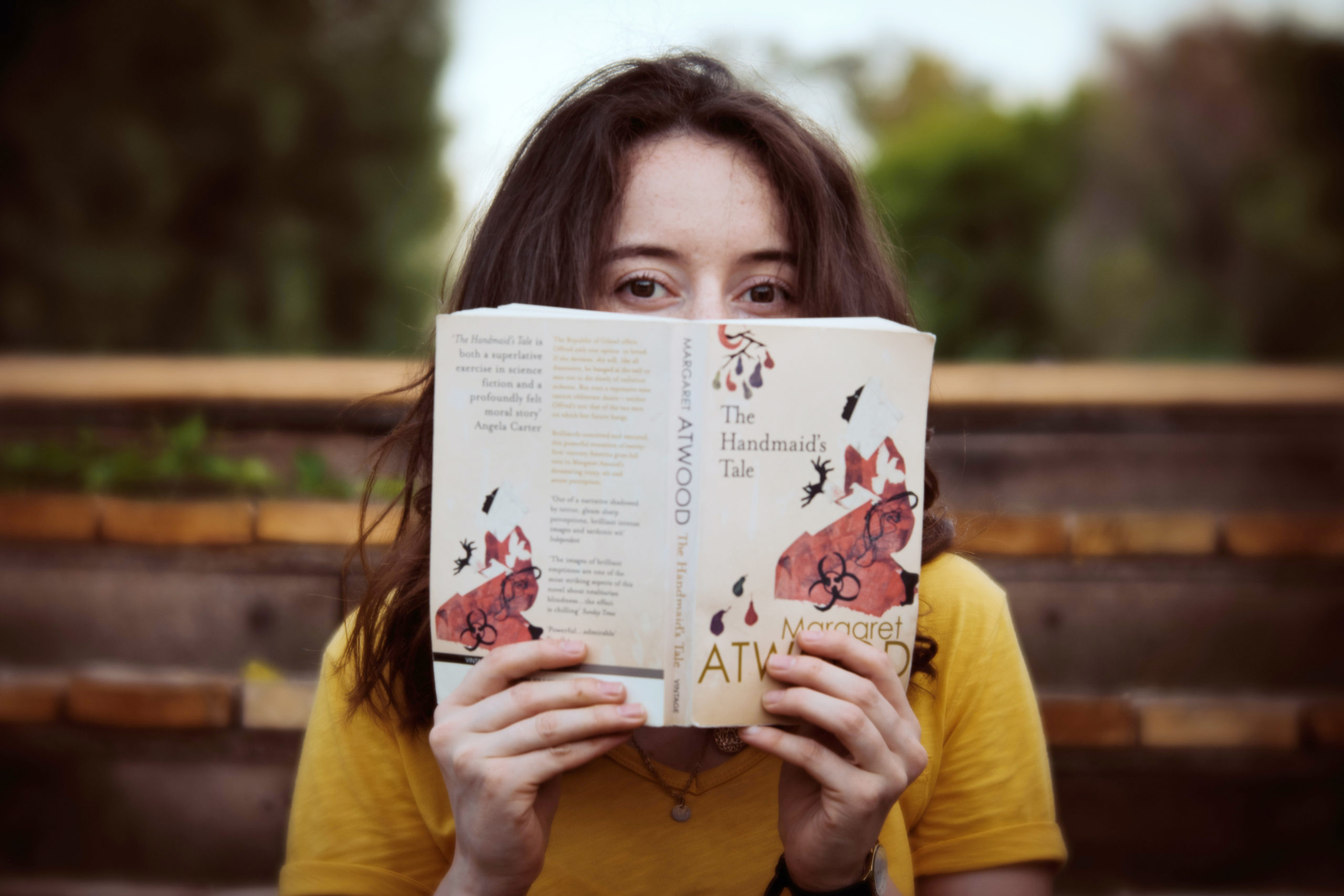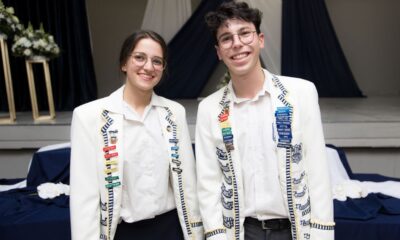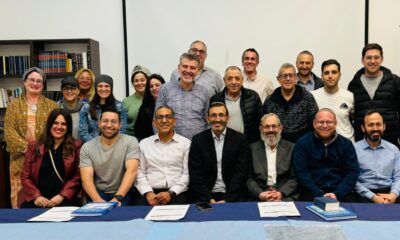
Featured Item

Facing the trauma of The Handmaid’s Tale head on
Published
1 year agoon
The prohibition and censorship of novels within school syllabi is a contentious issue. Now, Margaret Atwood’s The Handmaid’s Tale, which is an Independent Examinations Board (IEB) matric setwork, is at the forefront of the controversy.
Many adult readers have a difficult time grappling with the graphic depictions in the novel such as ritually sexually exploiting women in the name of a well-known Bible verse, or religious and political dissidents being hanged publicly, with their corpses displayed on a wall or brutally tortured and murdered.
The novel also deals heavily with religion, making explicit reference both to the Old and New Testament, and the corruption of traditional religious values.
The book features an extremist patriarchal group, The Sons of Jacob, and the so-called Rachel and Leah Centre, where women are trained to become nothing more than reproductive vessels known as handmaids.
These were among the items that rang alarm bells for some teachers and parents at the more religious Jewish high schools, who are opposed to their children having to study this controversial but brilliant book.
Rather than shying away from the sensitive, sometimes borderline offensive content that the novel presents or choosing to study a different novel altogether, Yeshiva College’s English department chose to tackle the issues head on, prompting students to explore the significance of the novel from a Judaic perspective.
Mr Terry Tennant, the head of English at Yeshiva College, said that when The Handmaid’s Tale was first set as a prescribed text in 2022, it was “a bit of a minefield”.
“[While] it’s a controversial text, it’s a text that has great value in its controversy,” he said, and “to run away from these [types of] texts, seems to be counterproductive to education”.
Tennant believes that “simply because we’re a religious [school], doesn’t mean that we should put ourselves at a disadvantage in the scheme of education.
“Freedom can be taken away so quickly and so easily, and the results can be so painful,” he said, however this novel, and literature in a more general sense, can “sensitise readers” to these issues. “Once we start attacking the [hard-earned] freedoms of society, we never know where that is going to end. In South Africa, we know this only too well.
“We only have to look back two or three years at what happened in Washington when Donald Trump tried to hijack the election. We only have to look at what’s happening in Eastern Europe” to realise that these dystopian ideas are gravely relevant, Tennant said.
Yeshiva brought in Ilana Stein from The Academy of Jewish Thought & Learning to assist, and the school hosted in-school talks for students as well as one for concerned parents on Sunday, 29 January. During these sessions, students and parents were encouraged to look further than the initially startling content, and understand how the biblical references played an essential role in evoking a powerful cautionary tale.
Rosh Yeshiva Rabbi Nechemya Taylor explained the importance all forms of literature represent for learning, whether it’s “literature which uplifts” or dystopian literature such as The Handmaid’s Tale. “Literature, art, and music have their own special language,” he said. “This [dystopian] literature exists, and we mustn’t be scared of dealing with it.” He also said that “only once we know how men can be so depraved, so wicked”, can we understand how to live in the right way.
Ariella Friedland, last year’s deputy head girl, presented a piece of writing that explained why The Handmaid’s Tale shouldn’t be removed from the IEB syllabus. “Shakespeare, Lord Alfred Tennyson, Richard Lovelace, the poets of my IEB literature pieces would be rolling in their graves at the thought of censoring Margaret Atwood’s The Handmaid’s Tale,” she said. “[The book’s] purpose is to shock and to disgust the reader, [and] by adding censorship and taking the book out of the syllabus, you aren’t just implying that as matrics, we’re immature and incapable of reading this novel, but you’re doing a disservice to those who prefer to think beyond Dr Seuss.”
Friedland recalled a quote from the book that stood out to her as a warning against complacency and a reminder to protect even the tiniest of our liberties. “Nothing changes instantaneously: in a gradually heating bathtub, you’d be boiled to death before you knew it.”
Stein explained the text from a Jewish perspective, beginning with an excerpt of the story of Jacob and Rachel having a child through surrogacy that’s used throughout the novel to justify the objectification of women in the role of a “handmaid”.
She emphasised that an important distinction should be made between the laws and stories within the Torah. The verses that Atwood uses within the novel to legitimise the corruption of the dystopian society are derived from Bereishit (Genesis). This book of the Torah describes a time before the Torah, and depicts the more disturbing aspects of human nature.
The very name of the totalitarian regime, The Republic of Gilead, comes from the eponymous biblical land of Gilead or Gil’ad on the east bank of Jordan, Stein said. The Tanach says “Gil’ad is a city of those who work iniquity; it’s stained with blood.” Just as the Torah includes the stories of Sodom and Gomorrah as a warning, the mention of Gilead within the Tanach seeks for such actions to be avoided rather than emulated.
Stein also discussed the treatment of women in the novel in light of the Torah. While our modern standards may be irked by the treatment of women in the Torah, she noted that the passage from Bereishit gives the “maids” their own names and identities as opposed to the novel, which assigns names to the handmaids that correspond to the “commander” for whom they work. The Torah also implies that the decision was made by Jacob and Leah equally, whereas, in the novel, the decision is made by the wider patriarchal society.
The Handmaid’s Tale doesn’t highlight the positive aspects of the Old Testament, Stein said, but rather the more problematic elements, causing many to dismiss the book as sacrilege.
It’s therefore important to highlight the best but also the worst sides of humanity, Stein said. After all, one of the primary methods of oppression within Gilead was prohibiting women from reading lest they discover knowledge on their own accord.
Tennant pointed out that when the text is discussed within the relevant context, “the reading of the book takes on a [deeper] meaning, and the classroom actually becomes alive”.
He explained that through these lectures and their efforts to widen the students’ scope of education, the school is equipping them with the analytical skills needed to interpret any piece of art or literature while still maintaining a strong sense of their Jewish identity.










